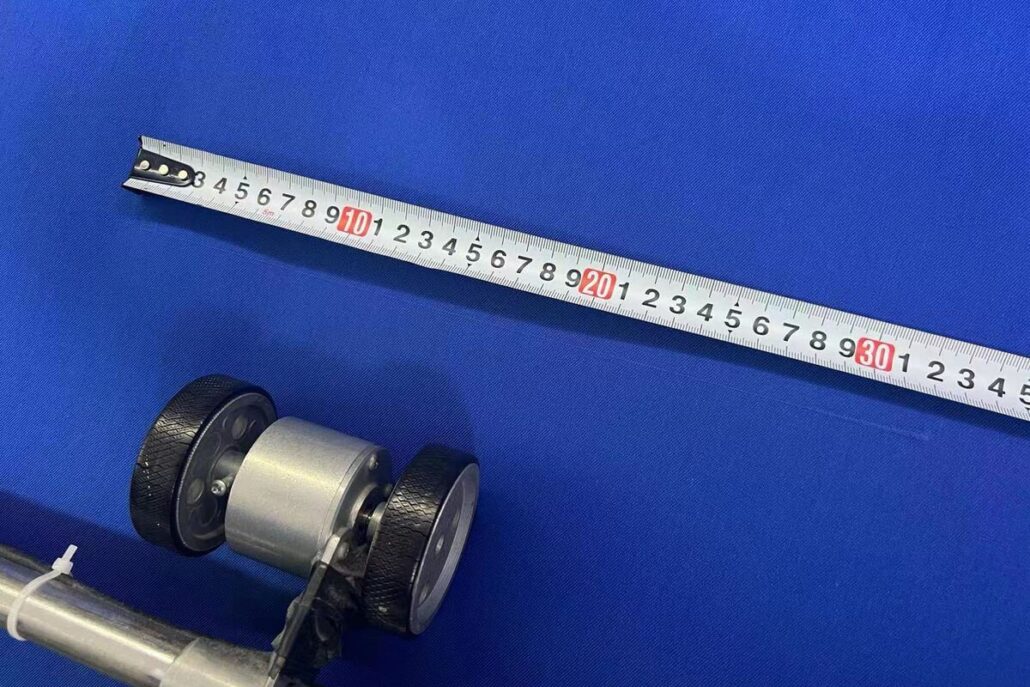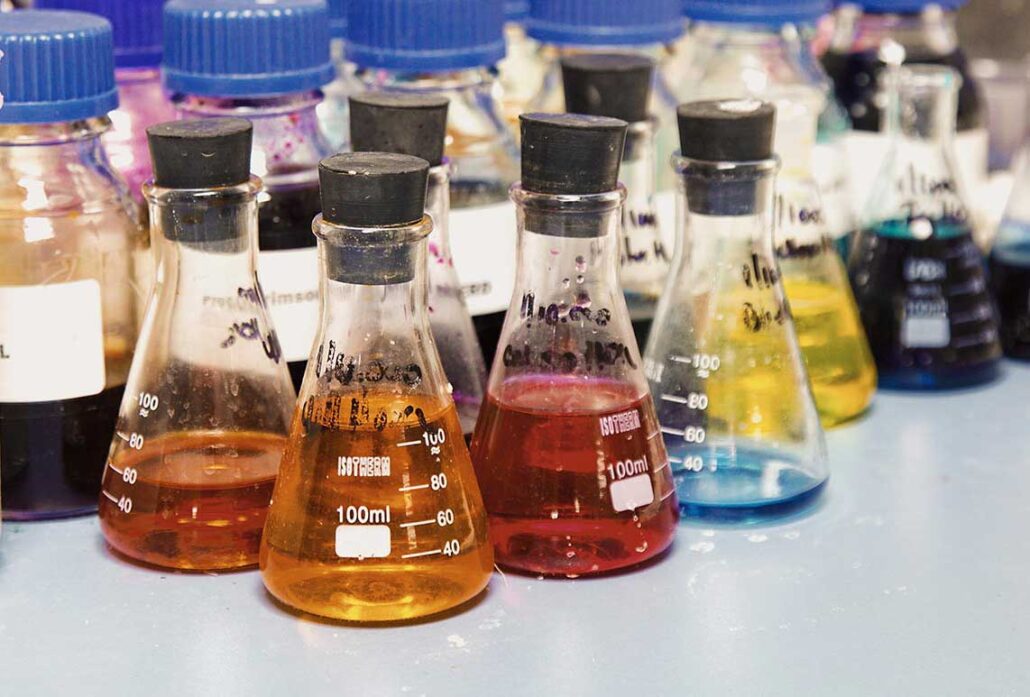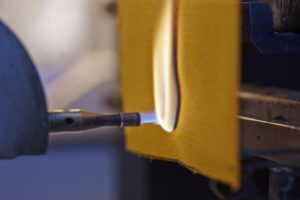As a sourcing manager in the workwear manufacturing industry, you have certainly encountered firsthand how quality fluctuations of flame resistant fabrics can cause production delays and financial losses. As FR safety requirements continue to increase in response to changing safety regulations, maintaining consistent standards for fabric quality is vital if your business is to remain competitive and comply with industry regulations.
In this blog post, we will discuss why it is essential to use high-quality FR fabrics that meet rigid standards and give you tips on how best to ensure consistency of quality when selecting an FR fabric provider.
Challenges of maintaining FR fabric consistency
Consistency in quality is crucial when procuring flame resistant (FR) fabrics for manufacturing protective workwear. The performance and safety of the FR gear depend on the fabric having reliable, uniform properties batch after batch.
However, maintaining complete consistency in FR fabric quality poses significant challenges.
Raw Materials Variability
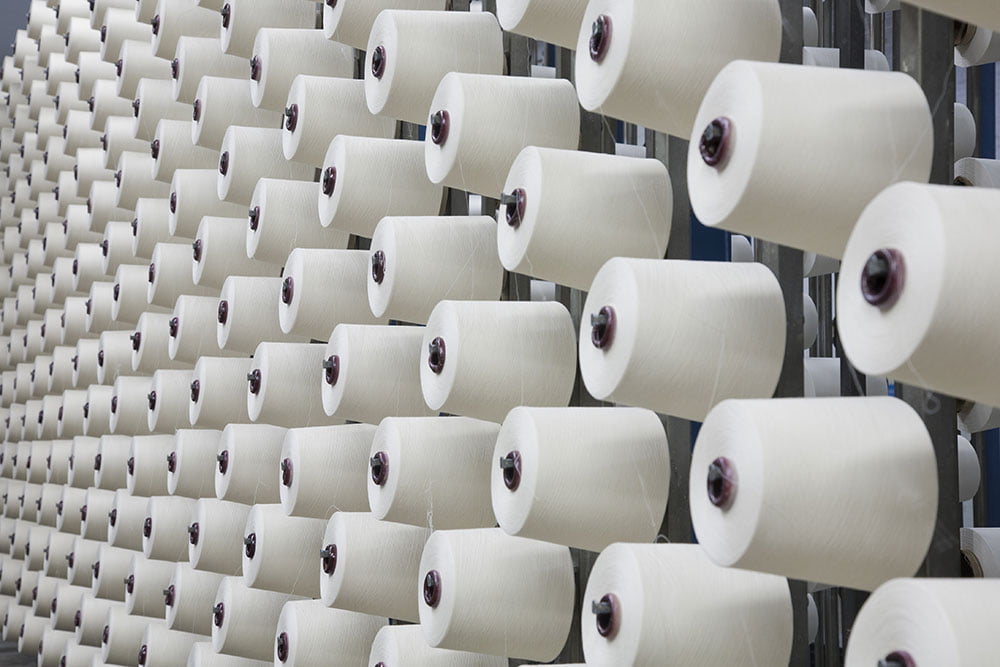
The fibers, yarns, chemicals, and components used to create FR fabrics can have inherent variability in their characteristics.
Even small fluctuations in the quality of these raw materials can impact the properties of the finished fabric.
For instance, the color consistency may be off if the modacrylic fibers in a fabric batch have slightly different dye absorption.
If the FR chemical treatment contains impurities, it can change the coating performance.
Manufacturing Process Deviations
Tiny deviations at various steps in the FR fabric manufacturing process can also influence the final product’s protective qualities and flammability properties.
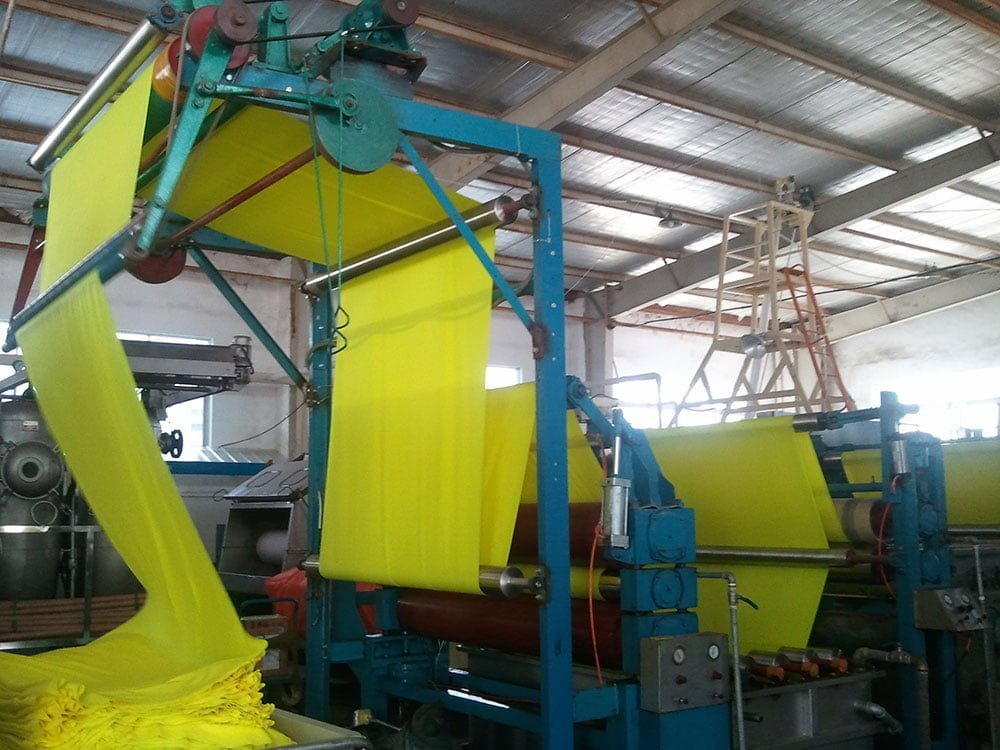
For example, if the temperature is a few degrees off during the FR treatment cure process, it may alter the bond strength of the FR layer.
Or if the padding pressure is too high, the fabric may have excess FR chemical residue. Even small process changes can affect the fabric’s ability to meet FR standards.
Complex FR Chemistry
The sophisticated chemical formulations used to impart flame resistance make consistent quality more complex than standard textiles.
It is challenging to keep the complex FR chemistry completely uniform each time while scaling production volume.
Any batch-to-batch variations in the chemical recipe can compromise the fabric’s protective performance.
Similar issues can also arise during the dyeing process of flame-resistant fibers, such as modacrylic and aramid.
Consequences of Inconsistency
When FR fabric quality fluctuates, the implications for workwear manufacturers and end users can be severe.
For instance, they may be unable to meet industry safety standards, causing delays in product launches. They may also face expensive litigation and recall costs if the end-user gear fails tests due to inconsistent FR performance. Consumers may also return workwear products due to issues like poor colorfastness.
What consequences can occur when the FR fabric quality is not consistent? Here below we listed the most common ones:
- Failing Flammability Standards
Inconsistent fabric batches may fail required flammability tests and compliance standards. This makes the FR gear unsafe for use, putting workers at risk of burns and traumatic injuries. Brands also risk product callback regulatory action if their garments do not meet FR safety codes.
- Reduced Durable Performance
In addition to the FR properties, the variability in fabric quality can impact the durability and lifetime of the FR garment.
This variability can result in garments prone to wearing out and breaking easily, with a lot of shrinkage and the colors fading away after repeated washings.
These issues will also indirectly cause reduced levels of protection against heat and fire hazards. Workers could get injured if their garments do not adequately shield them from brief flames or electric arc flashes.
- Wasted Inventory and Resources
If fabric batches fail to meet specifications, the unusable inventory has to be discarded. This wastes the raw materials, production costs, and storage expenses that went into those goods. Brands also have to absorb the financial impact of write-offs.
- Production Delays
When shipments are rejected for quality issues, workwear manufacturers must scramble to find replacement FR fabric sources at the last minute. This causes significant delays in production schedules while new supplies are secured. Lead times and customer service suffer.
The Need for Expert Quality Control

To ensure the consistency of the FR fabric, it is crucial to partner with a trusted supplier who can guarantee the highest standards and monitor each step in the production process.
It is also crucial for workwear manufacturers to invest in rigorous quality control processes that ensure all batches of FR fabrics meet stringent safety requirements.
Expertise in quality control is paramount for your FR fabric suppliers. They should institute stringent processes, including:
- Raw Material Auditing and Validation
All incoming materials, from fiber to chemicals, must be thoroughly audited and validated to catch any quality inconsistencies before they are used in production. Suppliers should be thoroughly vetted and regularly evaluated.
- Process Parameter Monitoring
At every step – from mixing to coating to curing – parameters like temperature, dwell time, line speed, and pressure should be meticulously controlled and monitored. Operators must be trained to detect any process deviations.
- Multi-Stage Testing
Finished fabrics should undergo extensive quality testing during production runs and final inspections. This catches any deficiencies before shipment. Testing should include relevant FR properties metrics and physical performance standards.
Partnering with trusted FR suppliers
The supplier should set up a traceability system to ensure full traceability of each batch of finished goods. This helps identify and address any quality issues quickly and accurately.
Better choose the supplier’s certified ISO quality management systems or similar standards. This is to ensure they are taking the necessary steps and have invested in quality processes.
By partnering with a reliable FR fabric supplier who takes quality seriously, you can produce FR workwear that consistently meets both safety standards and customer expectations.

WOKI FR in Quality Difference
we make consistent quality the number one priority. We only use materials and chemicals from reputable suppliers that have passed rigorous auditing processes.
During manufacturing, we carefully control all process parameters and train our staff to detect deviations proactively. We have extensive testing protocols – our finished fabrics must pass numerous qualification tests before shipment.
Conclusion
FR fabrics are complex and prone to inconsistencies, but reliable quality control processes can mitigate this issue. When sourcing FR fabric suppliers, choosing one that is competent and values quality is essential.
By partnering with suppliers who treat quality assurance as an imperative, brands gain invaluable peace of mind.
At WOKI, we go the extra mile to ensure our finished fabrics consistently meet safety requirements and customer expectations. Contact us today to learn more about our commitment to consistent FR fabric performance.
